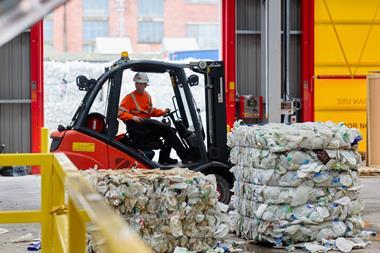Heralding a renaissance in science communication
I hope all of you have now had a chance to at least skim read the results of the excellent survey carried out this year by the Royal Society of Chemistry on the public’s attitudes to chemistry in the UK. If you haven’t, you still have time to catch up.
This research has brought about many surprises and even more conversations. Chiara Ceci presented the results at the American Chemical Society conference in Boston last August to a room packed with scientists (and me) and gasps, laughs and furrowed brows were to be found everywhere. It’s difficult to overstate the value of this research, the first of its kind, especially as we are only just beginning to understand how to integrate the findings into our activities and strategies for communicating chemistry. And this, rather conveniently, brings me to my big announcement`
Our science communication award for 2016 is now open. This year our theme is based on the public attitudes survey. We are asking entrants to tackle an issue or theme uncovered by the study and ‘do some communicating’ to address it, or explore it, to improve our chemistry conversations and to help chemists and non-chemists understand each other a little better.
All our finalists will be given the rare chance to give a public lecture in the Faraday theatre at the Royal Institution next year, which, as I’m sure you will agree, is an exciting prospect. If, like me, you grew up watching the Christmas lectures on TV and wondering if you’d ever be doing that yourself one day, or if you want to propel yourself into a career in science communication, this is an opportunity you don’t want to miss. Our eventual winner will also be whisked away for a special assignment; to get an idea of what awaits, you can read about Paul Brack’s adventures in Amsterdam, who won this year for his piece on Eqyptian blue. Oh, and we throw a bit of cash at the winner as well. So get online to find out more, and enter. Now, speaking of cash…
Let’s talk about funding
George Osborne is expected to present his comprehensive spending review on 25 November this year. I am not going to pretend that all the UK has to worry about in the present economic climate is science – there are many public sectors which need to find some stability in their funding. Nor am I going to pre-empt the doom of public funding of research in the UK. But I am going to ask you to think about how future funding would affect your research, your career, your study, and take some action if you feel it is warranted.
As early as 2012, 58% of researchers identified the UK’s funding climate as a reason to consider leaving the country,1 and we lose 4% more researchers than we gain (only Belarus and Cuba having a higher proportion of ‘brain drain’ among their academics (7%)).2 A study commissioned by BIS found that every £1 of public investment in R&D gives rise to an increase of £1.36 in private funding on average.3 Cutting public expenditure in research would likely trigger similar, additive cuts from private investment.
If you’d like to make sure that those we have elected to run our country have all the facts and are taking public research funding seriously · and the lack of it even more so · you should write to your MP. The RSC can help you do this as well as give you more information and facts and figures.
On this occasion, a little bit of collective action feels like the right thing to do.
References
1Legacy of the 2010 science budget cash freeze, Science is Vital, 2013 (http://bit.ly/1Ovjvdn)
2Paul Jump, Times Higher Education, July 2015 (http://bit.ly/1Ff1mPC)
3What is the relationship between public and private investment in science, research and innovation?, Economic Insight, April 2015 (http://bit.ly/1Gq2ab4)












No comments yet